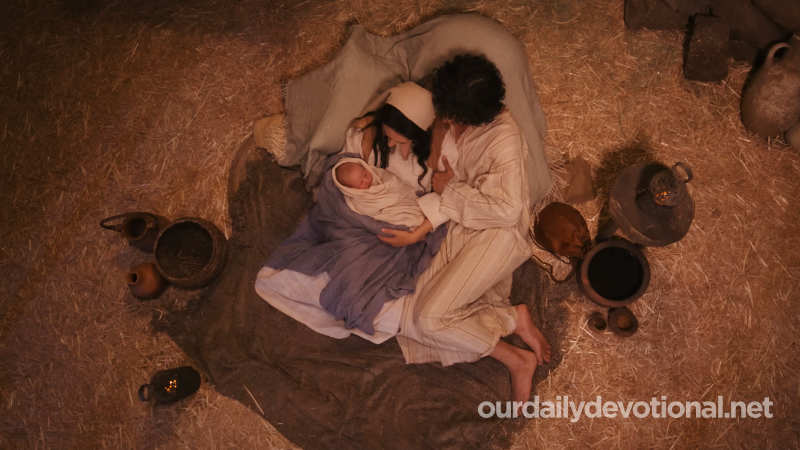This book, as its name indicates, is about the Levites.
Third book of the Pentateuch.
When the tabernacle was erected and the priests had been commissioned to serve the altar, the worship remained to be regulated. This is the theme of the regulations given in Leviticus.
At first glance, this book may seem annoying, and even outdated; However, it is full of teachings; It is deeply instructive and spiritual when we study it in the light of the Epistle to the Hebrews.
It teaches us, with the types and symbols of the OT, how sinful people could approach a holy God and maintain communion with Him. Sacrifices and the priesthood were essential for those who wanted to approach God.
Communion with the Lord demanded ritual and moral purity. If Exodus is the book of redemption, Leviticus is the book of worship, sanctification and service of a redeemed people.
(a) Content:
(A) Prescriptions regarding sacrifices (Lev. 1:1-7; cf. Lev. 7:37-38). These are:
(I) the burnt offering (Lev. 1; 6:1-6);
(II) the meal offering (Lev. 2; 6:7-16);
the peace offering (Lev. 3; 7:11-21, 28-38);
the atonement offering (Lev. 4; 6:17-23).
(B) Consecration of Aaron and his sons to the priesthood (Lev. 8-9).
(C) Punishment of Nadab and Abihu, guilty of a sin of presumption; complementary norms whose need then became evident (Lev. 10).
(D) Laws on purity regarding impure foods, contagious diseases, natural functions (Lev. 11-15); These laws date back to the pilgrimage in the desert (Lev. 14:34; cf. 16:1).
(E) The great day of atonement (Lev. 16), already foreseen in Ex. 30:10.
(F) The code of holiness (Lev. 17-22).
(G) Festivals and social norms (Lev. 23-25).
(H) Warnings and prescriptions regarding vows and tithes (Lev. 26-27).
(b) Author, date and writing.
Fifty-six times throughout the twenty-seven chapters of the text, Moses is credited with writing the words that God himself addresses to the people (Lev. 1:1; 4:1; 5:14, 20; 6:1 , 12, 17; 7:22, 28, etc.).
Thus, apart from two brief accounts (Lev. 10:1-7; 24:10-14), everything constitutes in the most direct way "The Word of Jehovah" or description of the worship that He prescribed for Moses. Despite this, critics reject the mosaicity and authenticity of Leviticus.
They make this book a so-called "priestly code", written by P (symbol of "Priests", priests in English) around the year 500 BC. or somewhat later after the return from the Babylonian exile.
The Jewish priests of that time, eager to give themselves a leading place in Israel, would have invented this entire ritual, putting it under the name of Moses to make it more easily acceptable.
This theory, lacking any evidentiary basis, raises more problems than those it aims to solve, and falls under the weight of very serious objections.
Despite what one may claim about the absence of the notion of literary property among the ancients, naming Moses fifty-six times as the author of such a "pious fraud" is totally contrary to the sense of morality and integrity that It occurred among the Israelites.
On the other hand, it is a historical absurdity to imagine that a code of laws developed so late in history could have been accepted by everyone and, even more incredible, received without any hesitation at that time as coming from Moses.
It is evident, according to the text, that the ordinances of Leviticus were given at Sinai (Lev. 1:1; 7:38; 26:46; 27:34), during the lifetime of Moses and Aaron (Lev. 8:1, etc. .), before the entry into Canaan (Lev. 14:34; 25:1), in the wilderness (Lev. 16:22), while Israel lived in a camp (Lev. 4:12; 10:4; 24 :10), with only one recognized sanctuary, the tent of meeting (Lev. 1:3, etc.).
It is inconceivable that the priests of Ezra's time would go to the trouble of giving all the local color of the desert to the product of their imagination 1,000 years later.
This goes against all the internal evidence of the book. It has also been claimed that the Levitical ritual was too detailed and formalized to date back to the time of Moses. However, archaeological discoveries in the Middle East have shown that the codification of laws has existed much earlier than critics claimed.
The religious ceremonies of the great civilizations of this era were meticulously regulated. The Ras-Samra tablets, which, based on the revised chronology, date from the time of the Kings, mention "sacrifices for sin" and show several points of resemblance to Leviticus.
On the other hand, already in Sumer, in a much more remote period, there was a codification of all aspects of life, and with no less intensity the religious one. Hammurabi also codified an entire legal system early on.
Likewise, we must mention the acceptance of the Pentateuch by the Samaritans, which can only be explained on the basis that the Pentateuch was genuinely prior to the exile and of recognized antiquity.
The discovery, among the mss. of the Dead Sea, from a good part of chapters 17 to 26 of Leviticus also constitutes a powerful additional argument against the theses of criticism. There is no valid reason of any kind that would lead us to doubt the mosaic nature of the book or its veracity.
(c) The sacrifices.
According to the Epistle to the Hebrews, the Levitical cult was the image and shadow of heavenly things, while the sacrifices offered on the altar were the type of the great sacrifice of the cross (Lev. 8:4; 9:12, 23; 10:1, 11-12).
In Lv. 1-7 the sacrifices are presented in an order that goes from God to man: The burnt offering and the fine flour offering consumed on the altar (Lev. 1-2) represent Christ totally offered to God in his blameless life and in his death (Eph. 5:2).
The peace sacrifice illustrates the communion established between God and man on this basis. The sacrifice of atonement (for sin, Lev. 4-5) teaches that only blood atonement can allow the sinner access to such communion.
(d) Hygienic measures.
The hygienic measures of Lv. 11-15 are notable, both for their self-worth and for their moral teachings. God cares for the material and moral well-being of the OT people. Sanctification has to go in close correspondence with bodily purity.
“Impure” is everything that is harmful to health and leads to death (both in the physical and moral domains). It is noteworthy the way in which the symptoms of certain diseases are indicated (Lev. 13). The sources of contagion are:
contaminated objects (Lev. 11:32, 34; 13:47; etc.),
sick people, with contagious and non-contagious stages (Lev. 13:8, 13, 45-46),
contacts (Lev. 11:24, 26, 32),
harmful foods (Lev. 11:40),
spitting (Lev. 15:8),
excrement (Lev. 15:31; Deut. 23:13-14).
Disinfection was carried out by:
running waters (Lev. 14-15),
fire (Lev. 13:52, 55),
shaving (Lev. 14:8-9),
the quarantine (Lev. 14:8, etc.),
estrangement (Lev. 14:40-45).
Prophylaxis is also clearly taught (Lev. 13-14). It is evident that diet played a great role in health.
Prohibited:
dead or sick animals (Lev. 11),
meat not fresh (Lev. 7:17-18; 19:6-8),
stagnant water (Lev. 11:34, 36),
the blood (Lev. 7:26-27).
It is astonishing to see in these laws and ordinances a scrupulously sanitary order, precisely at a time when totally different norms reigned, and the deepest superstition and ignorance reigned in the greatest neighboring civilizations.
Moses speaks as if he knew the most recent hygienic discoveries. However, we should not stop here. All these norms have a deep spiritual and typological meaning.
Coming from God, it could not be more logical that what is beneficial in the spiritual field for communion with God also has its close counterpart in well-being in the physical field. God is the creator of both kingdoms of life, and so he has ordained it.
(e) Social legislation.
The social legislation of Leviticus is equally advanced for his time and ours! With norms impregnated with love and justice, the situation of workers, the poor, foreigners, the sick and the elderly is established (Lev. 19).
Money is not to be lent with interest or usury (Lev. 25:36, 37). There will be neither Jewish slaves nor prostitutes in Israel (Lev. 25:39-55; 19:29). The lands, distributed equally among families, are inalienable; You can only sell its usufruct until the next jubilee.
It is abundantly provided for the rest of all: the Sabbath (Lev. 23:3), the festivals (several weeks a year, Lev. 23), the sabbatical year (Lev. 25:4) and the jubilee year (Lev. 25:10-11). What regime or what political program would dare to propose this type of measures? Only God can (Lev. 25:18-22; Ps. 127:1-2), and it will be so and even better during the millennium of Christ's theocratic rule on earth.
Meaning of LEVITIC (Book)
This book, as its name indicates, is about the Levites.
Third book of the Pentateuch.







